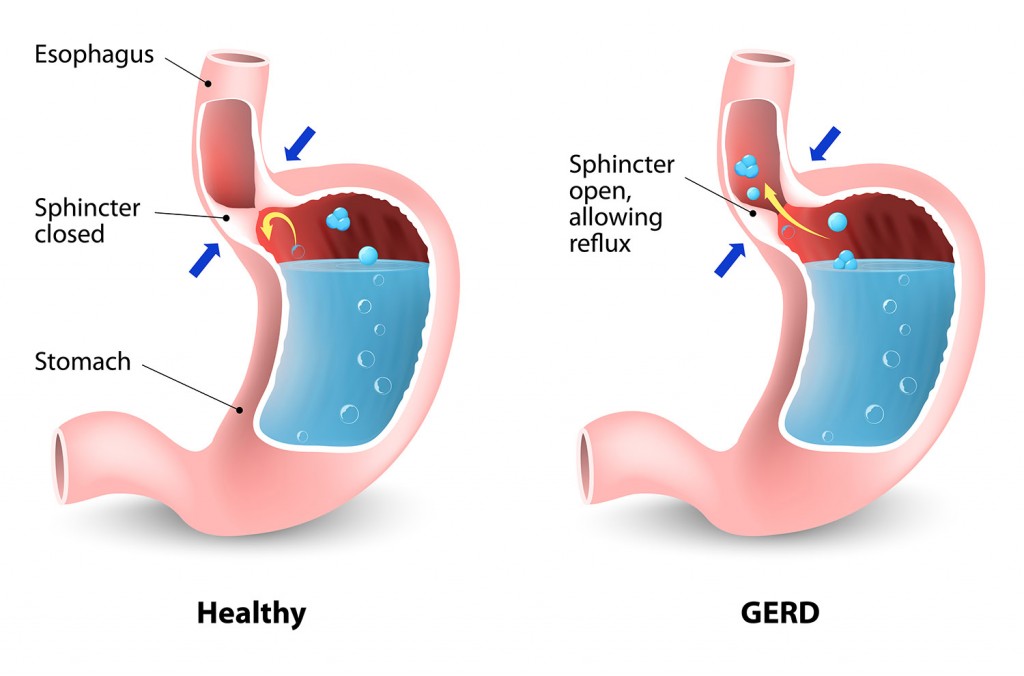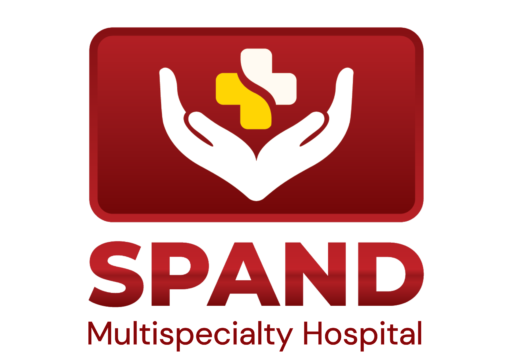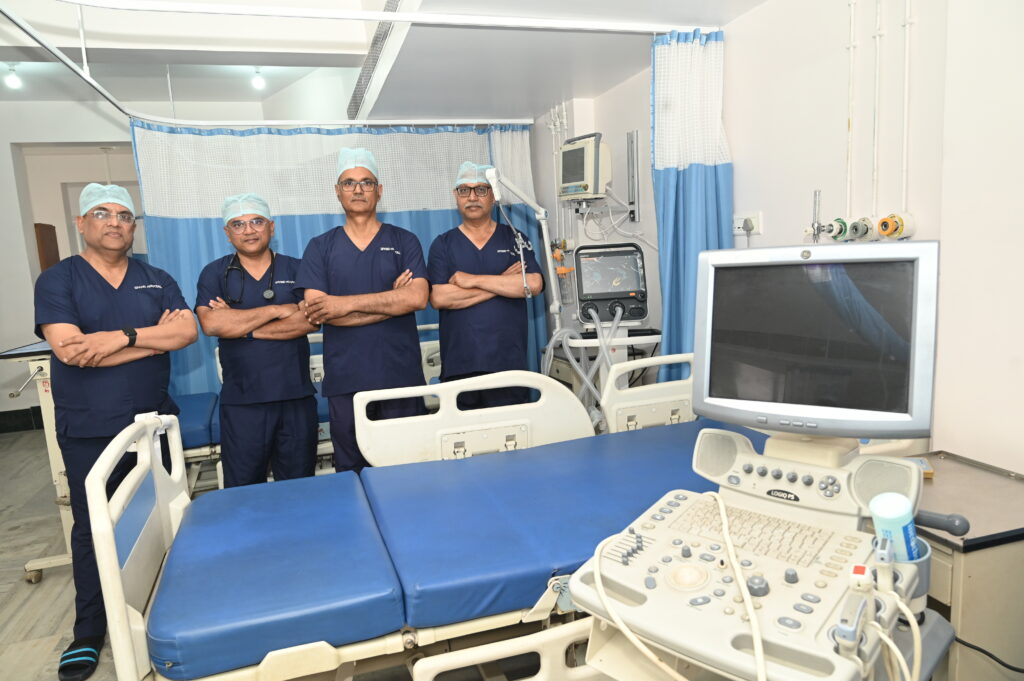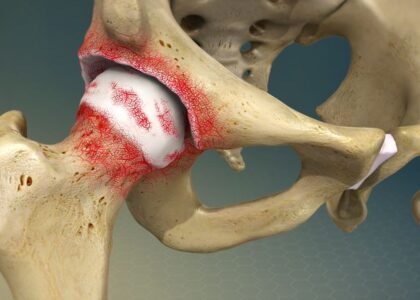
Gastroesophageal reflux disease (GERD) is a common digestive disorder that affects millions of people worldwide. It’s a condition where stomach acid frequently flows back into the tube connecting your mouth and stomach, known as the esophagus. This acid reflux can irritate the lining of your esophagus and cause discomfort, leading to heartburn or acid indigestion. If left untreated, GERD can lead to more serious health issues like esophagitis, strictures, or even esophageal cancer.At Spand Multispeciality Hospital, recognized as the best multispeciality hospital in Jamshedpur, we emphasize early diagnosis and effective treatment of GERD to help our patients lead a healthier life.
Common Symptoms of GERD
Recognizing the symptoms of GERD early can help in managing the condition effectively. The most common symptoms include:
- Heartburn: A burning sensation in the chest, especially after eating or at night.
- Regurgitation: A sour or bitter-tasting acid backing up into the throat or mouth.
- Difficulty swallowing: Some patients may experience discomfort while swallowing.
- Chronic cough: Persistent cough, especially at night, can be associated with GERD.
- Chest pain: In some cases, GERD can cause chest pain, which may mimic a heart condition.
- Hoarseness or sore throat: Due to continuous irritation of the esophagus.
If you experience any of these symptoms regularly, it’s crucial to consult a specialist at Spand Multispeciality Hospital, the top hospital in Jamshedpur for expert diagnosis and care.
Causes of GERD
GERD occurs when the lower esophageal sphincter (LES), a ring of muscle at the end of your esophagus, doesn’t close properly. This allows stomach acid to flow back into the esophagus. Several factors can contribute to the weakening of the LES, including:
- Obesity: Excess weight can increase pressure on the stomach, forcing acid up into the esophagus.
- Pregnancy: Hormonal changes and increased pressure during pregnancy can cause GERD.
- Smoking: Smoking weakens the LES and increases acid production.
- Diet: Foods like fatty or fried items, chocolate, caffeine, and alcohol can trigger acid reflux.
- Hiatal hernia: A condition where part of the stomach moves above the diaphragm, allowing acid to escape more easily.
At Spand Multispeciality Hospital, our team of gastroenterologists works closely with patients to identify the root cause of GERD and provide individualized treatment plans.
Diagnosis and Treatment at Spand Multispeciality Hospital
As the top multispeciality hospital in Jamshedpur, we use advanced diagnostic tools to accurately identify GERD. Some of the key tests include:
- Endoscopy: A thin tube with a camera is inserted into the esophagus to check for inflammation or other issues.
- pH Monitoring: This test measures the amount of acid in the esophagus over 24 hours.
- Barium swallow: An X-ray test that checks for abnormalities in the esophagus.
Once diagnosed, GERD can be managed through lifestyle changes, medications, or in severe cases, surgery. Our hospital provides comprehensive care to help patients find relief from their symptoms.
Lifestyle Changes to Manage GERD
For mild to moderate GERD, lifestyle changes can often help reduce symptoms:
- Maintain a healthy weight: Losing excess weight can significantly reduce the pressure on your stomach and lower the risk of acid reflux.
- Eat smaller meals: Instead of large meals, opt for smaller portions throughout the day to reduce the likelihood of reflux.
- Avoid trigger foods: Spicy, acidic, and fatty foods are common triggers. Identifying and avoiding these can help manage your symptoms.
- Elevate the head of your bed: Raising the head of your bed by 6 to 8 inches can prevent acid from flowing back into the esophagus while you sleep.
- Quit smoking: Smoking weakens the LES and exacerbates GERD symptoms.
Medical Treatment Options
When lifestyle changes aren’t enough, medical treatments can offer relief. At Spand Multispeciality Hospital, our doctors may recommend:
- Antacids: These medications neutralize stomach acid and provide quick relief.
- H2 blockers: These reduce acid production in the stomach.
- Proton pump inhibitors (PPIs): Stronger acid blockers that promote healing of the esophagus.
- Surgical options: For severe GERD that doesn’t respond to medication, procedures like fundoplication may be recommended.
Why Choose Spand Multispeciality Hospital for GERD Treatment?
As the best multispeciality hospital in Jamshedpur, Spand Multispeciality Hospital offers state-of-the-art facilities and a highly skilled team of gastroenterologists dedicated to providing the best care for GERD patients. With our holistic approach, we ensure that each patient receives personalized attention and the most effective treatment options available.
Our hospital is renowned for its commitment to patient safety, advanced technology, and a compassionate environment, making us the top hospital in Jamshedpur for gastroenterological care.
Conclusion
Gastroesophageal reflux disease (GERD) is a manageable condition, but early diagnosis and treatment are essential to prevent complications. At Spand Multispeciality Hospital, we are committed to helping our patients live comfortably and symptom-free. If you’re experiencing persistent heartburn or any other symptoms of GERD, don’t hesitate to reach out to the top multispeciality hospital in Jamshedpur for a consultation with our expert team.
For appointments or more information, contact Spand Multispeciality Hospital today.











Thanks for taking the time to put this together! I’m definitely going to share this with my friends. This post is really informative and provides great insights! I enjoyed reading this and learned something new. The content in this blog is truly eye-opening. I enjoyed reading this and learned something new. Such a helpful article, thanks for posting!
Elite quality private proxies, Infinite bandwidth, 1000 mb/s superspeed, 99,9 uptime, Low consecutive IP’s, Number consumption constraints, Multiple subnets, USA or Europe proxies – Buy Today – https://DreamProxies.com
You have noted very interesting details ! ps decent web site.